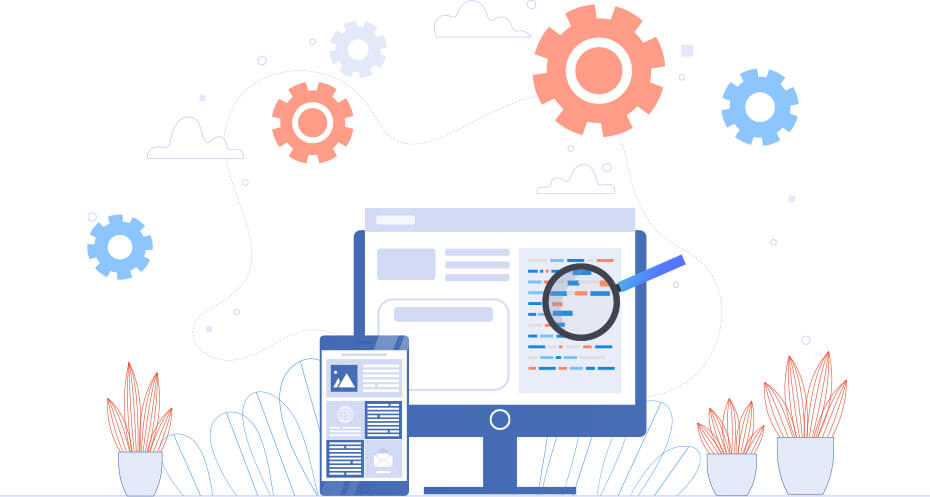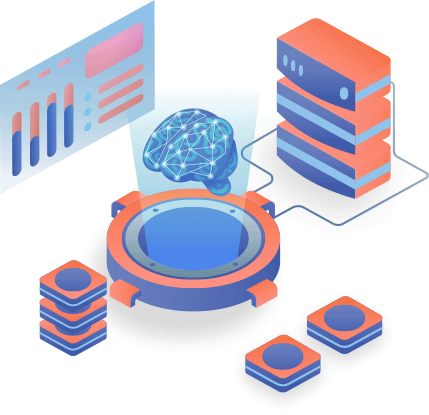Artificial Intelligence in Testing
Advantages / Challenges for AI in Software Testing
Today’s world is the time of Agile/Continuous Delivery, where every business has digital presence and application requirements are changing at a fast pace to meet dynamic business requirements. The complexity of the applications is also increasing at an exponential rate because of the different kind of technologies being used in the market to cope up. Most of the sectors today, whether it be finance, health or retail, is trying to innovate using AI-based applications that help automate tasks.
What is the effect of this phenomenon on software testing?
While testing, the software is subject to various kinds of possible scenarios to assess the whole application in terms of implementation risks and overall threshold. This implies that along with the continuous involvement of the technology, the inseparable part, i.e. the quality assurance of the software also needs to be evolved to keep up with the pace.
Consequently, software testing is also incorporating and shifting towards artificial intelligence in the pursuit of perfection and to make the application infallible. We are transitioning into a new era where machines would be self-sufficient to write & execute test cases instead of manual testing done by humans. Artificial Intelligence focuses on training the software to fathom relation between input data and output data, which is analogous to the manual testing activities. We enter input and examine the output to compare it with the expected output.
What is the effect of this phenomenon on software testing?
While testing, the software is subject to various kinds of possible scenarios to assess the whole application in terms of implementation risks and overall threshold. This implies that along with the continuous involvement of the technology, the inseparable part, i.e. the quality assurance of the software also needs to be evolved to keep up with the pace.
Consequently, software testing is also incorporating and shifting towards artificial intelligence in the pursuit of perfection and to make the application infallible. We are transitioning into a new era where machines would be self-sufficient to write & execute test cases instead of manual testing done by humans. Artificial Intelligence focuses on training the software to fathom relation between input data and output data, which is analogous to the manual testing activities. We enter input and examine the output to compare it with the expected output.
Advantages of using AI in Testing
- a.The overall extent of testing can be enhanced with AI in automated testing, resulting in the improvement of quality of software.
- a.Software goes through multiple revision cycles. Each cycle, the source code is changed, but the test cases mostly remain the same. Manually repeating those test cases can not only be costly, but also take much longer compared to automating the process.
- a.Human error is something inevitable and can never be prevented completely, even by the most careful testers. In such scenarios, automated testing, with the aid of AI can improve the accuracy and quality of testing by processing huge amounts of data consecutively to identify similar error trends and identifying anomalies.
So does this mean AI in Testing is a no brainer solution for Software Testing? Is it flawless?
Just like a coin has two sides, AI in Testing also has its own challenges.
Just like a coin has two sides, AI in Testing also has its own challenges.
Challenges for AI in Software Testing
When we as humans are to test a system, we would follow standard testing practices to come up with a set of test cases. A challenge with AI is that it might create limitless test cases which would not be feasible.
AI could also end up exhaustively testing parts which are of very less significance to business, as it won’t be able to prioritize as humans do.
Duplicate defects would pop up often, which would be understood by testing manually without AI.
Testing each feature of the system for functionality, performance, scalability, stability, security, and much more keeping the priority of it in check.
Another challenge is to verify the behavior of the application based on the input data. As applications can be complicated and the patterns in which the data can be entered be more complicated, it becomes difficult for AI to accurately verify the same.
AI could also end up exhaustively testing parts which are of very less significance to business, as it won’t be able to prioritize as humans do.
Duplicate defects would pop up often, which would be understood by testing manually without AI.
Testing each feature of the system for functionality, performance, scalability, stability, security, and much more keeping the priority of it in check.
Another challenge is to verify the behavior of the application based on the input data. As applications can be complicated and the patterns in which the data can be entered be more complicated, it becomes difficult for AI to accurately verify the same.

AI in Software Testing can be a huge aid for software testers. Although AI in Testing sounds like a revolution, there are challenges in implementing the same and as of now, there are many things that humans just inherently do better.




